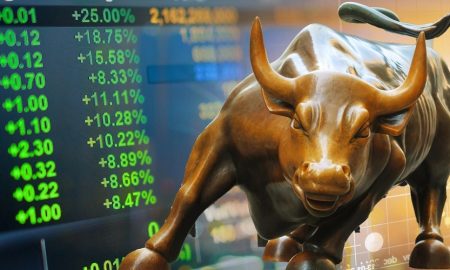
US Foreign Investments Fell by 32% in 2017

A Decline in Foreign Investments
Reports reaching the media indicate that the inflow of money into companies in the U.S. plunged about 32% in 2017. A report released sometime last week by the United States Bureau of Economic Analysis showed that foreign investors expended a total of $259.6 billion in 2017 for the acquisition, launch, and expansion of businesses in the U.S. The figures were an apparent decline from the recorded high of $439.5 billion worth of foreign investment in 2015.
In a breakdown of the overseas sources of the investments, the highest portion of the 2017 foreign direct investment was $66.2billion gotten from Canada. Following Canada’s investments in proportion were the direct investments made by the United Kingdom with $40.9 billion, Japan with $34.0 billion and France with $23.1 billion. Breaking the investments down into regions, Europe had the highest contribution to new investments of about 40%.
The preliminary data for 2017 further showed that California maintained a top position on the lists of destination states for direct foreign investment with $41.6 billion. Followed by California were Texas with $39.7 billion and Illinois had foreign direct investment of $26.0 billion.
The industry that enjoyed the most substantial chunk of the direct foreign investment among the primary industries was the manufacturing industry that had about $103.7billion invested or 40% of the total percentage of investments. Within the manufacturing industry, the food manufacturing sector had the largest direct investment ($34.0 billion). The information industry also recorded large expenditure with $25.7 billion and the real estate, leasing and rental had $17.0 billion

The manufacturing industry had the largest chunk of investment ($103.7 billion) which accounted for 40% of the total foreign direct investments in 2017
Influencing Factors
A couple of factors determine the amount of money a country gets in foreign direct investment. The strength of a country’s currency has a lot to do in influencing the level of foreign investments in the country as it makes the country’s assets more attractive to investors. Sources have suggested that the US dollar might have played its role in causing a fall in foreign investments in the country over the last couple of years.
In addition, the financial instability in overseas countries also made the US safe market a safe bet even though the country’s recorded foreign investment plunged over the years due to the increased competitiveness of developing countries.
On a broader outlook, the US wasn’t the only country at the receiving end of decreased direct foreign investments in 2017. Globally, the Organization for Economic Cooperation and Development noted that foreign direct investment inflows went down about 18% in 2017 from 2016’s recorded percentage and almost 24% from the post-recession high recorded in 2015. The OECD further stated that the decline was as a result of a surge in corporate and financial restructuring.

Globally, the OECD reported that foreign direct investment inflows went down about 18% in 2017 from 2016’s recorded percentage and almost 24% from the post-recession high recorded in 2015
Sources also reported that large business holdings had a higher tendency of supporting foreign investments in American companies claiming that the money was for backing research and development, expansion and employment of the country’s residents.
Foreign Investments Under Trump Administration
Sources claimed that the Trump administration has witnessed a more dynamic outlook. During his administration, the President has had cause to celebrate foreign investments in the U.S. such as Foxconn’s, a Chinese company, construction of a factory in Wisconsin. However, Trump prevented the Singaporean Chipmaker, Broadcom, from acquiring the California-based Qualcomm owing to the reservations that American technology could be taken over by the Chinese.
Trump stated that there was in existence credible evidence indicating that Broadcom and the affiliates of the company might undertake actions that would pose a threat to the US national security and insisted that Broadcom and Qualcomm abandon the takeover permanently.
The President has also given his support to a pending bill in the Congress which would have the effect of expanding the powers vested in the U.S Committee on Foreign Investment for reviewing those variants of transactions.
As noted by Peter Navarro, a Trade adviser, foreign investment could be regarded as conquest by purchase. He added that there was a likelihood of foreigners taking ownership of the country’s trade sector.
Further, Nancy Mclernon, president of Organization for International Investments opined that attitude in addition to U.K.’s Brexit affected investment. McLernon added that characterized by several uncertainties characterized 2017, and multinational businesses were generally concerned about the attitude of governments towards foreign companies whose operations extended to their countries.
McLernon concluded that it was the reason why cross-border dealings were being affected globally and not just in the U.S
More in Advisor
-
`
Streaming Giant Netflix Faces Yet Another Challenge
In the ever-evolving landscape of streaming entertainment, Netflix, once the unchallenged king of digital content, now faces a complex puzzle beyond...
December 1, 2023 -
`
Signs You Should Quit Your Current Job & Move On
You Don’t Feel Comfortable at Work Imagine spending the majority of your waking hours in a place where you feel uneasy,...
November 20, 2023 -
`
How to Adjust and Renew Your Portfolio
Investing in the financial world is like navigating an ever-changing landscape—constantly evolving, always shifting. The key to staying on track? Regularly...
November 18, 2023 -
`
Dr. Dre’s Divorce With Nicole Young: A Closer Look
When the beats of old-school hip-hop start bumping, Dr. Dre’s name reverberates in fans’ minds worldwide. Born as Andre Young, this...
November 12, 2023 -
`
Why Branded Content Is the Best Way to Connect With Your Audience
Have you ever found yourself deep in a compelling article or engrossed in a video series, only to later discover that...
November 5, 2023 -
`
Why the Gender Pay Gap Could Be Getting Worse | New Research Findings
At a time when women are making significant strides in various professional arenas, a new report throws light on a trend...
October 28, 2023 -
`
What Is a Bull Market and How Can Investors Benefit From One?
In finance, the term “bull market” is frequently used to describe a period of optimism, rising asset prices, and investor confidence....
October 19, 2023 -
`
A-List Power Couples Where the Women Make More Money
In an era of shifting gender roles and evolving definitions of success, it’s increasingly common to find celebrity couples where the...
October 15, 2023 -
`
Massive Price Cuts: Tesla Only Witnesses ‘Modest’ Sales Gain in China
Cutting Down Prices, But Not Cutting the Mustard? Summer 2023 brought with it a promise of sunshine and relaxation. For Tesla...
October 8, 2023















You must be logged in to post a comment Login